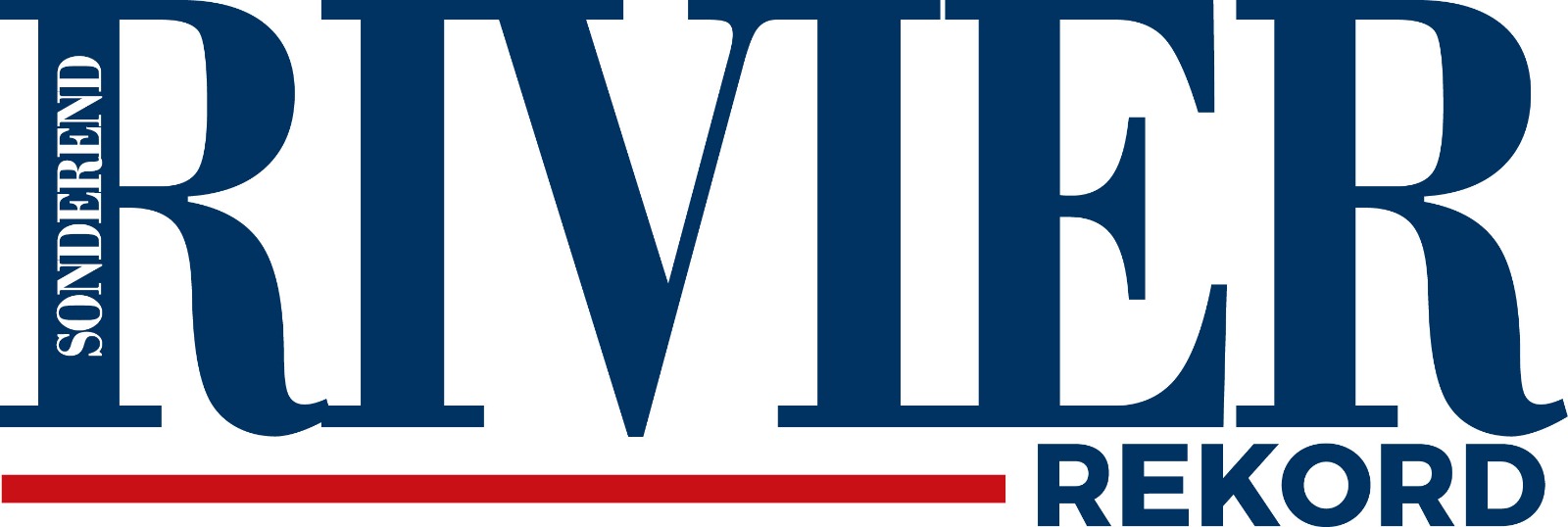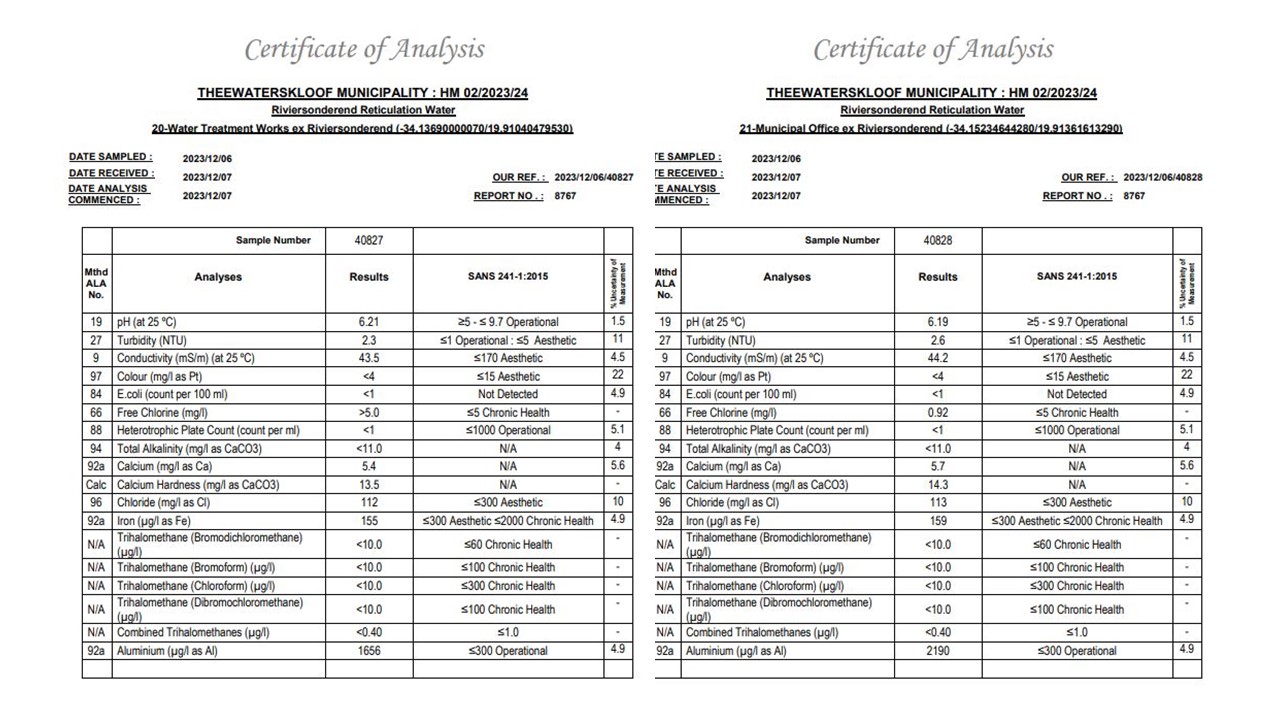Water gets clean bill from municipality: Scientist side-eyes the high aluminum levels
In recent weeks, some locals have reported what appears to be a suspected stomach bug circulating in the area.
Rivier Rekord addressed this matter by reaching out to Theewaterskloof municipal manager Wilfred Solomons-Johannes via email. Despite not responding to our previous interview request dated December 15, Solomons-Johannes forwarded our current water inquiry to the relevant parties.

The latest water quality testing results were supplied to Rivier Rekord from Hegans Marthinus, manager of Solid Waste, Water, and Sewerage at Theewaterskloof municipality.
"Bacteriological testing is done to determine whether disease-causing bacteria, in particular faecal coliforms, are present in water," said Marthinus, and continued, "We will investigate every effort to make it earlier or to take samples to the lab for testing to ensure that the water is safe for human consumption."
The next compliance sampling is scheduled for January 24.
Rivier Rekord has urged Marthinus to inform the community of these water quality findings once they are available.
Additionally, we spoke to Cllr Piet Stander yesterday, who assured us that all filters are clean. According to Stander, Riviersonderend's water hasn't been this pure in a considerable period.
According to De Jager, the permissible levels of aluminium in the water exceed the standard by more than three times (according to the limit indicated in the report) and eight times the limit indicated by the European Union.
While refraining from making definitive claims regarding its correlation with stomach issues, she highlighted the logical connection, stating, "If it were a pathogen or disease, people and animals wouldn't necessarily be affected in the same way, indicating other potential causes. However, pathogens should not yet be ruled out from further inquiries and analyses of the water quality. There is also no Enterococci test included in the report, for example, another microorganism that could be linked to the onset of the symptoms some people are experiencing,"
De Jager emphasised the absence of sulphate results, a potential contributor to similar problems. Expressing uncertainty about recent changes, she attributed the prevalence of aluminium in the water as is commonly found in water systems near mines.
She remarked, "One cannot easily remove aluminium with filters either. They have to resort to reverse osmosis and distillation processes, which I doubt are in place in municipal water treatment plans. If the onset of symptoms people are experiencing was sudden, I don't know exactly how it would have come about; however, the aluminium levels alone should be cause for concern,"
Addressing sulphate fluctuations, De Jager explained to Rivier Rekord that environmental factors like storms can elevate sulphate levels temporarily. Although this increase may not directly cause disease, it could lead to sudden, filter-resistant problems with water quality.
"Other heavy metals that are usually tested for water quality, such as lead and cadmium, are also not included in the report. Heavy metals are known to be toxic to animals and humans and have been linked to diseases affecting the central nervous system and cognitive decline."

Informative read:
Editor: Anchen Coetzee
Subeditor: Ethan Cane



